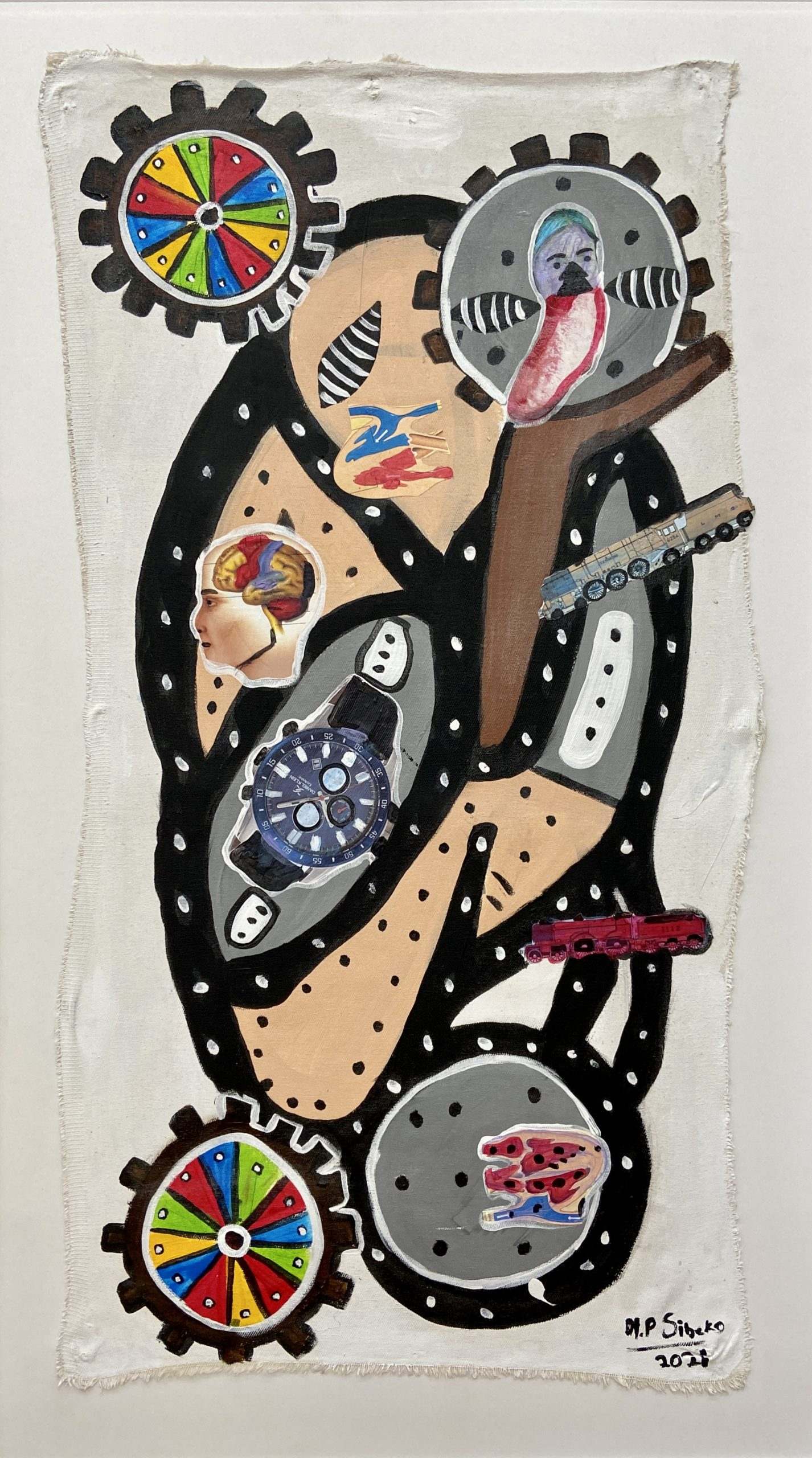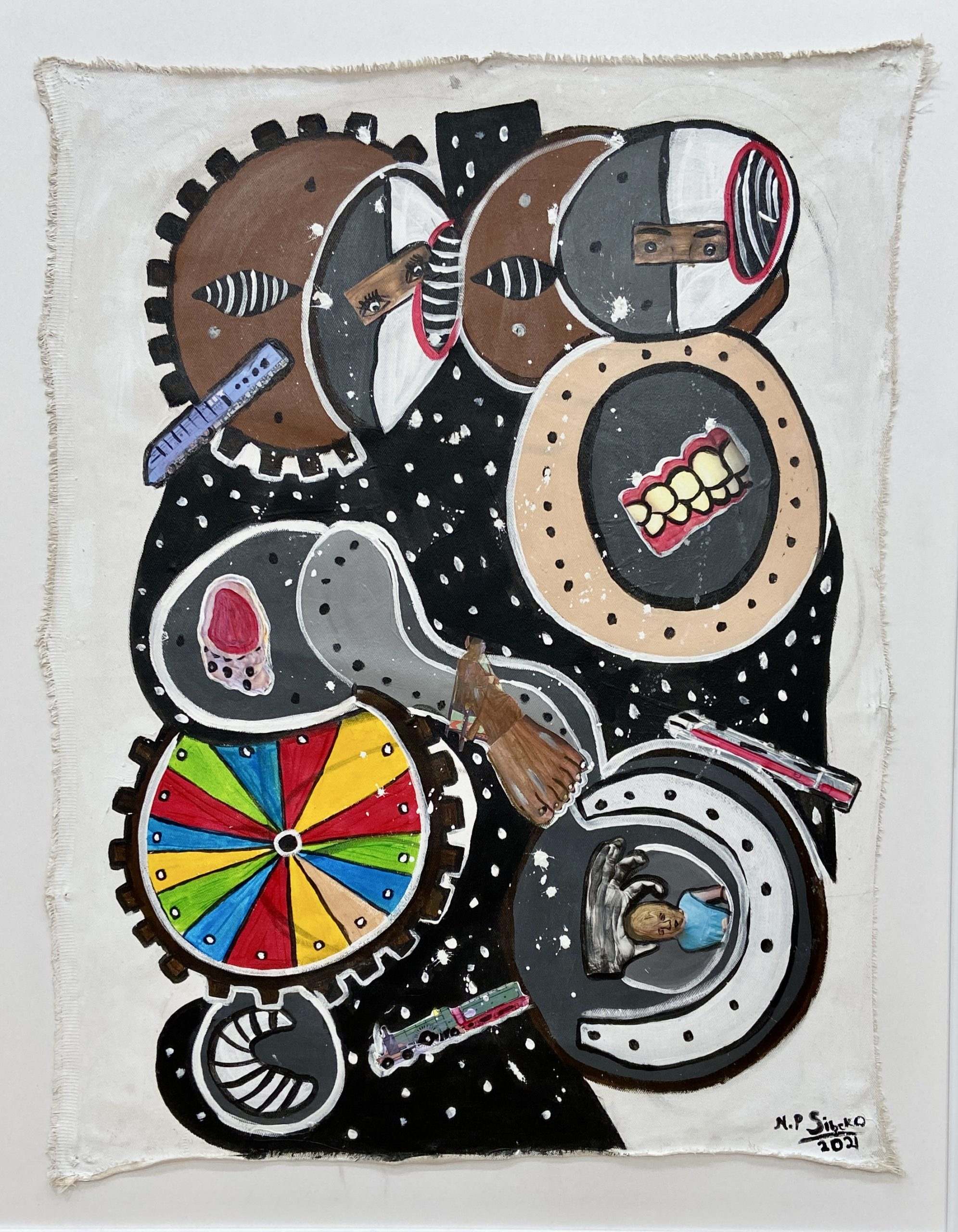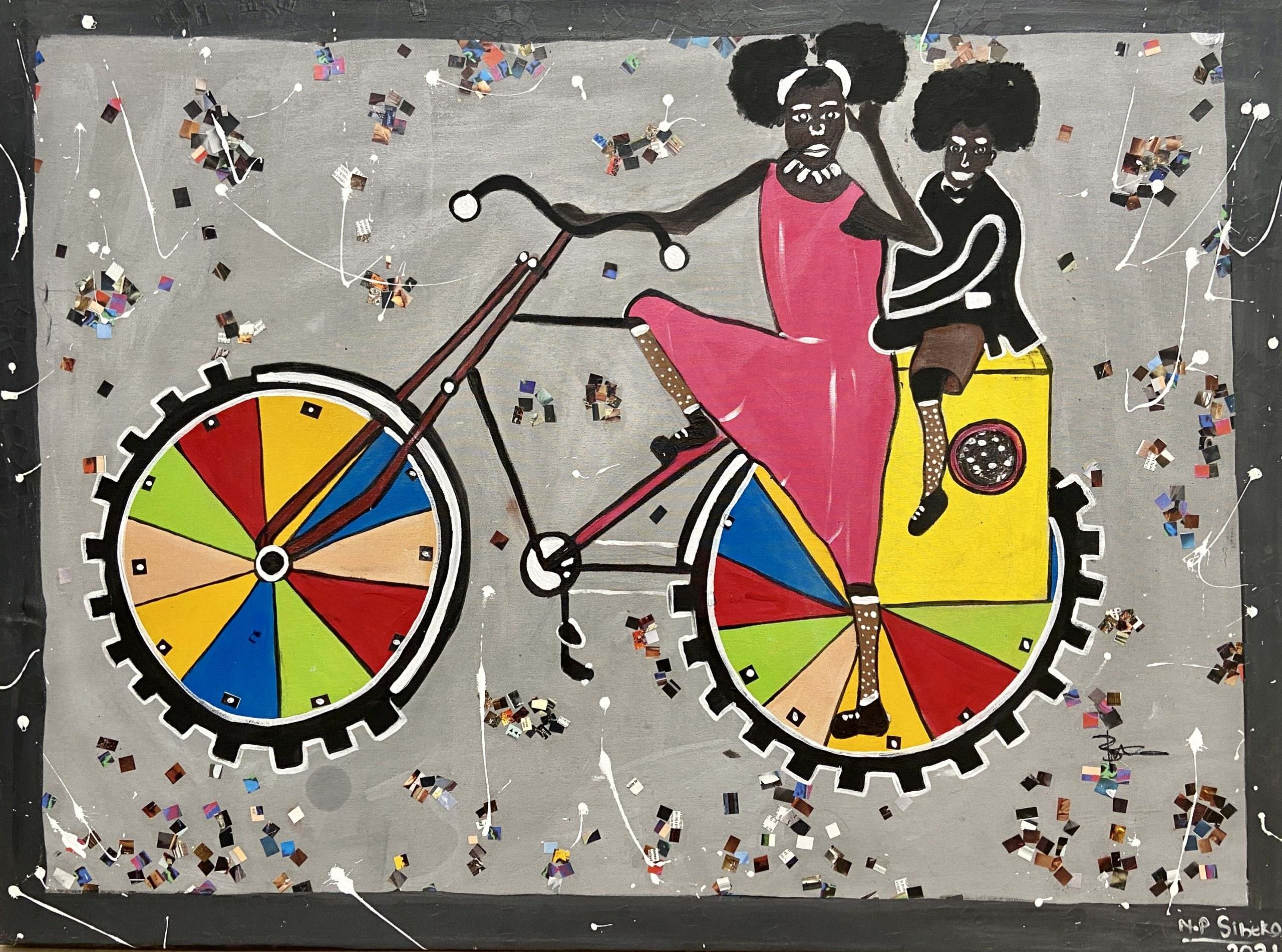Collection: Wheels of Time
Interested in one or more artworks from this collection?
By: Sibeko Nkuly
surreal, phantasy, collage, South Africa, Soweto School of Art, violence against women
Sibeko’s mixed media canvases reflect social change in isiZulu culture, recognising opportunities for renewal and redemption, but also issuing warnings to the fast-paced generations who need to “slow down and catch up” or risk irreversible loss.

Sqalo l (Beginning of time I) (2021)
Sqalo is a word from my home language, isiZulu, meaning beginning. Sqalo is a fresh start, or the beginning of time. Previously there was nothing on Earth, but with God’s words “Let there be light” -- that’s where the life of non-living and living things began. There is always timing for everything, for the beginning and the end; we as humans can predict the beginning of life (birth), but unfortunately we cannot predict the end of life which is death. We all have a choice of Sqalo, where you choose the way you want to lead your life. Mistakes are inevitable, and they shape and motivate us towards the right direction… to fail in life is also your responsibility. The wheels cannot turn against time but only move forward with time.

Sqalo II (Beginning of time II) (2021)
Sqalo ll represents the choice we have in life to make our own decisions. These days we move so fast, we even forget the important things that matter in our lives. We are easily disrupted by the materiality and glamour of life. Our bodies are with the people we love, but our minds are somewhere else. Parents are too busy to listen to their children’s cries for love and attention… and meanwhile social media steps in, creating an unhealthy obsession with physical appearance. These obsessions are nothing new, but in this era the wheels of time have seen the rise of social media and its influence on concepts of beauty, attraction, and glamour. In reality, these are issues of self-esteem and confidence, and do not reflect the value of an individual.

Lungelo (Rights) (2021)
Lungelo is an isiZulu word meaning Rights. In my culture, in Isizulu, children’s voices were never heard, their opinions were never heard and did not matter. Parents and elders were the only people with a right to speak. Children who were raped by people close to them couldn’t speak about the abuse, as they feared to talk – particularly if the perpetrator was the bread-winner at home.
We have moved with time, things changed and now children have a voice. We have a law that protects children from being victimised. Assistance is always available to them and the law also gives children the opportunity to educate themselves, and even to go back to educate their parents. Parenting is more than being a provider; children need their parents to support them emotionally. In the worst cases, parents who fail their child, believing that elders must be right and children are always wrong, risk never getting a second chance to hear their child’s thoughts.

Don't Bully Me (2021)
I created “Don’t bully me” in reaction to how I see humans and animals moving with the times. Humans have power and responsibility to lead and protect on Earth, but as time has progressed, it’s not always the case. Human behaviour towards animals can be cruel, they can be physically abusive even towards the animals they keep as pets. Animals have feelings and emotions too.
Humans have occupied and dominated nearly every place on earth, changing the environment so that no animals exist without human influence. There is a journey of discovery to be undertaken, as humans realise their role to protect the planet and the animals who depend on them.
Please send us a message below or pick another communication option below.
Phone us
Phone: 0041 (0)79 467 84 86
Write us
E-mail: info@gallerybrulhart.ch
Find us
Rue des Vollandes 21
1207 Genève
Copyright 2021 Gallery Brulhart © All Rights Reserved
